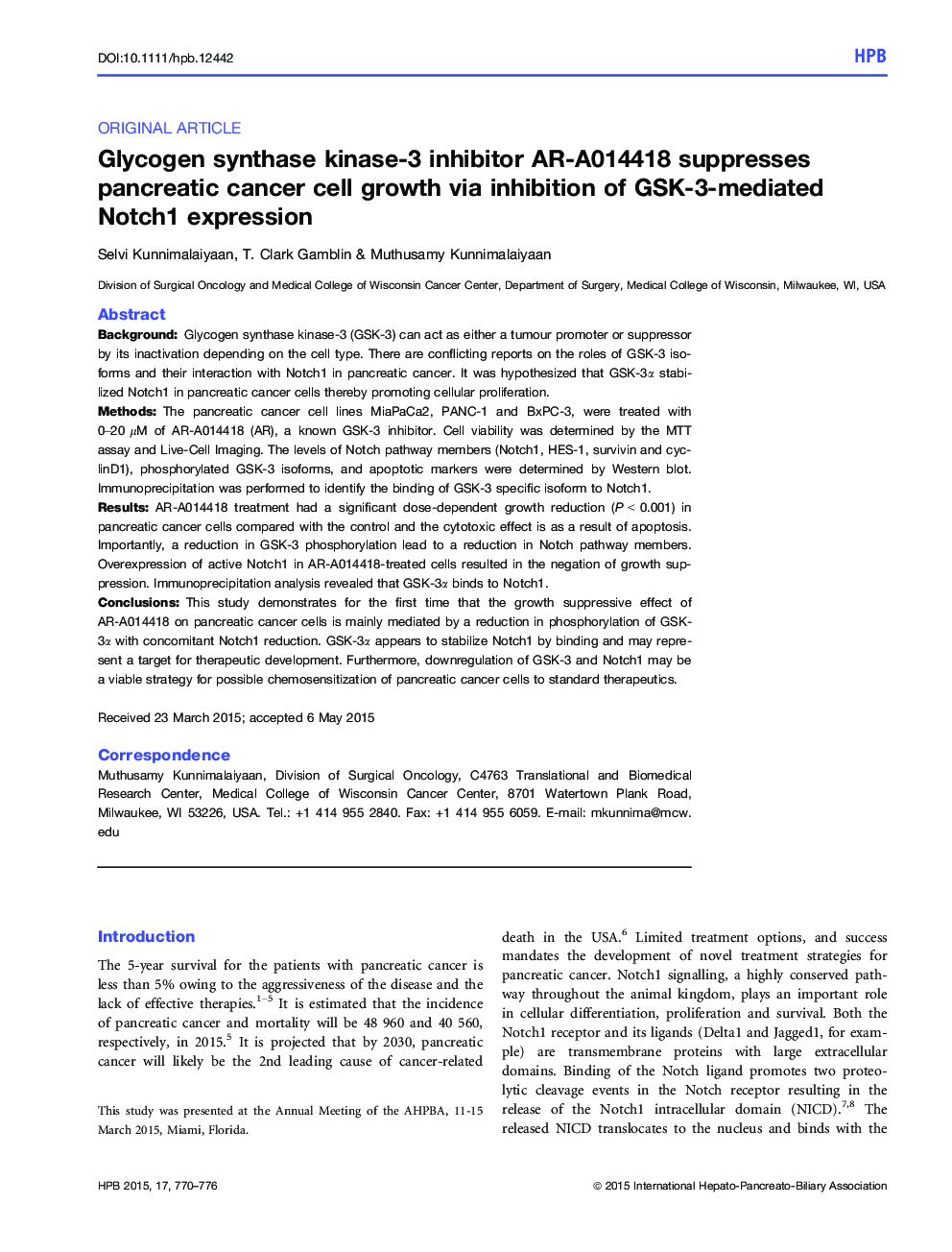| Article ID | Journal | Published Year | Pages | File Type |
|---|---|---|---|---|
| 3268741 | HPB | 2015 | 7 Pages |
BackgroundGlycogen synthase kinase-3 (GSK-3) can act as either a tumour promoter or suppressor by its inactivation depending on the cell type. There are conflicting reports on the roles of GSK-3 isoforms and their interaction with Notch1 in pancreatic cancer. It was hypothesized that GSK-3α stabilized Notch1 in pancreatic cancer cells thereby promoting cellular proliferation.MethodsThe pancreatic cancer cell lines MiaPaCa2, PANC-1 and BxPC-3, were treated with 0–20 μM of AR-A014418 (AR), a known GSK-3 inhibitor. Cell viability was determined by the MTT assay and Live-Cell Imaging. The levels of Notch pathway members (Notch1, HES-1, survivin and cyclinD1), phosphorylated GSK-3 isoforms, and apoptotic markers were determined by Western blot. Immunoprecipitation was performed to identify the binding of GSK-3 specific isoform to Notch1.ResultsAR-A014418 treatment had a significant dose-dependent growth reduction (P< 0.001) in pancreatic cancer cells compared with the control and the cytotoxic effect is as a result of apoptosis. Importantly, a reduction in GSK-3 phosphorylation lead to a reduction in Notch pathway members. Overexpression of active Notch1 in AR-A014418-treated cells resulted in the negation of growth suppression. Immunoprecipitation analysis revealed that GSK-3α binds to Notch1.ConclusionsThis study demonstrates for the first time that the growth suppressive effect of AR-A014418 on pancreatic cancer cells is mainly mediated by a reduction in phosphorylation of GSK-3α with concomitant Notch1 reduction. GSK-3α appears to stabilize Notch1 by binding and may represent a target for therapeutic development. Furthermore, downregulation of GSK-3 and Notch1 may be a viable strategy for possible chemosensitization of pancreatic cancer cells to standard therapeutics.
